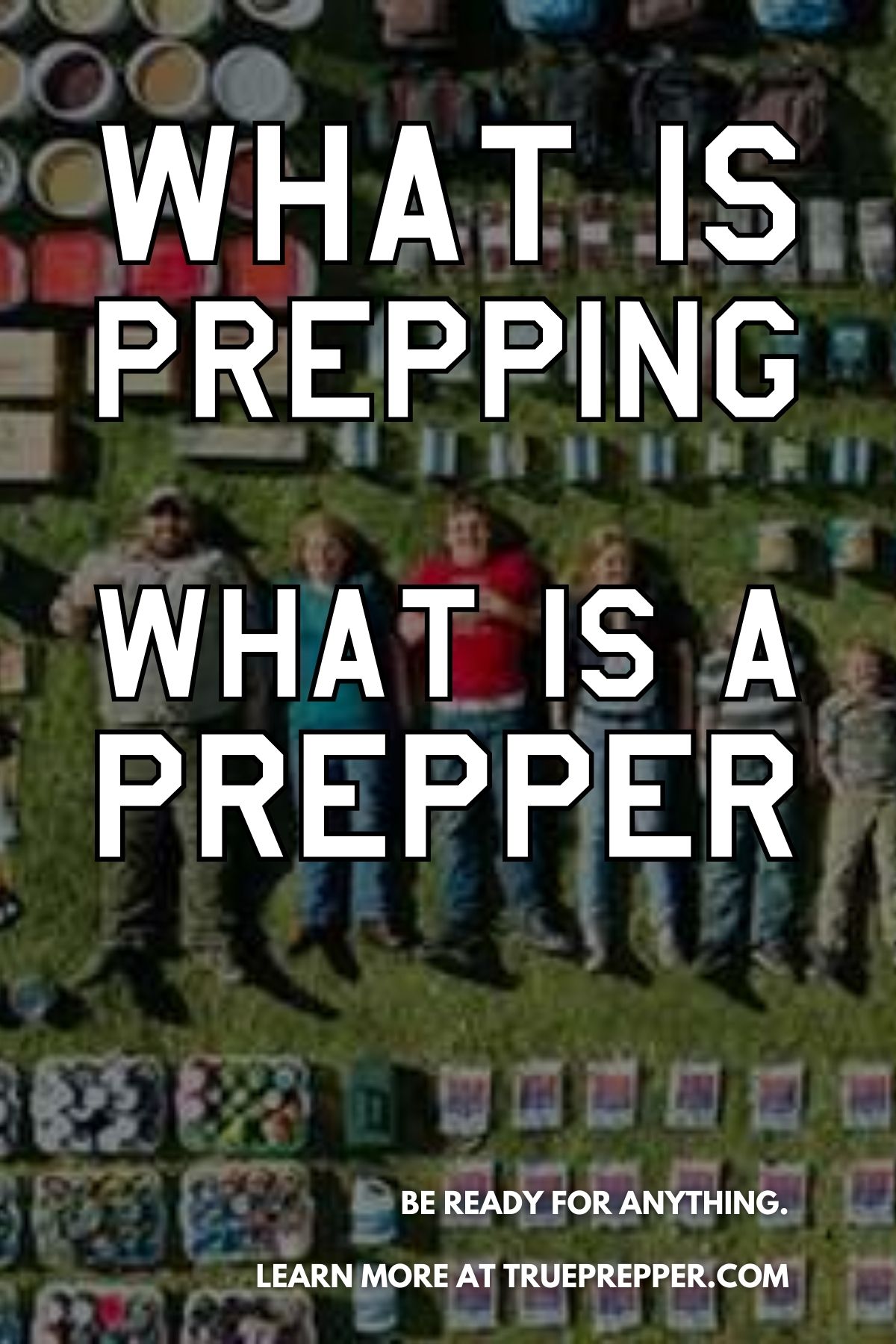What is Prepping and What is a Prepper?
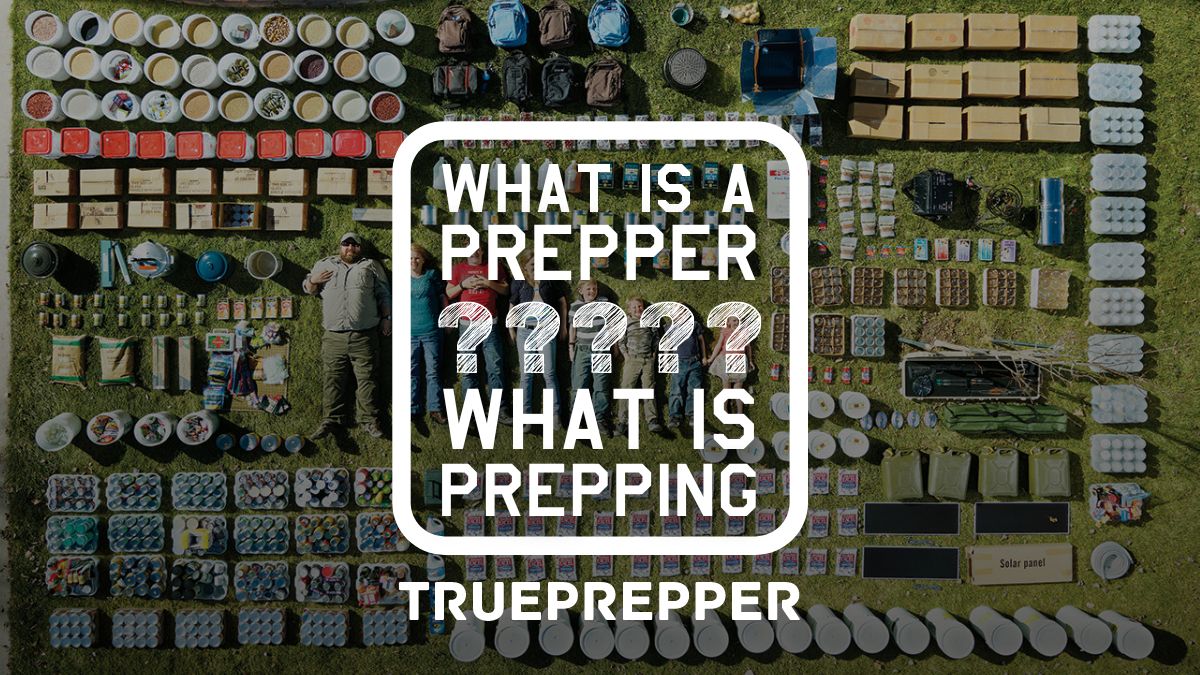
Preppers are more common than you may think. We’ll break down what prepping is and who preppers are.
BY SEAN GOLD, UPDATED:
We independently review everything we recommend. When you buy through our links, we may earn a commission. Disclosure >
Contents (Jump to a Section)
What is Prepping?
Prepping is creating plans, gathering resources, and developing skills to overcome emergencies, disasters, and survival situations. The scope of preparedness is large and up to the prepared individual, ranging from simple power outages to apocalyptic events.
The majority of people in America (73%) have taken at least one step to prepare for a natural disaster or emergency. Some people choose to lean into preparedness a little harder than just one step, and those people are commonly called preppers.
Dictionaries define prepping as:
The process of preparing something or preparing for something.
And, in our context, it goes further:
Gathering materials and developing plans for possible catastrophic disasters or emergencies, usually by stockpiling food, ammunition, and other supplies.
The dictionaries aren’t wrong, but their definition is far from complete.
Prepping has multiple levels and motivations and can be completely tailored to the individual. “Minimalist” preppers hardly stockpile any supplies, favoring learning skills and building communities’ disaster response. “Doomsday” preppers harbor the idea that the apocalypse is a risk worth preparing for. “Liberal” and “Conservative” preppers wear their political brand on their sleeve. Throughout all of these ‘subcultures within subcultures’, there are still the basic elements of preparedness, self-sufficiency, and resilience. Any prepper can adopt a label, go without, or create their own unique brand of prepping.
Prepping has become popular lately. You could attribute it to the recent pandemic, increased disaster occurrences, political changes, or pop culture, but more and more people are becoming interested in being more prepared for life’s disruptions.
And those people, when they take more than one step into preparedness?
Well, they’re called preppers.
What is a Prepper?
A prepper is someone that creates a plan, gathers resources, and gains skills so that they can be more prepared for emergencies, disasters, and other survival situations.
Preppers are normal people from all walks of life that understand the need to plan ahead to prevent hardship.
Preppers try to reduce their dependencies on infrastructure. There are several strategies for this, including:
- stockpiling and storing extra resources (esp. food, water, tools)
- learning survival skills
- building resilient communities
- or going off-grid
Most preppers use a combination of these strategies to better prepare themselves and their families for a wide range of potential threats. The combination they use can let you know what ‘level’ they have pushed their preparedness to.
Levels of Prepping
There are plenty of labels going around for preppers tied to their motivation or strategy, but all preppers fall within certain levels of prepping that show their level of preparedness. Most preppers work through these levels until they have hit their desired ‘level’ of prepping. Everyone perceives risk in different ways, so naturally, everyone prepares in different ways and for different amounts of time.
1. Basic Preparedness
Every government, military, church, business, community center (the list goes on..) promotes the idea that individuals and families should be prepared. Although there can always be a grocery store rush before a disaster, most people have some elements of preparedness in place. Food, water, first aid supplies, gas, toilet paper, and other staples go quick.
Most people can get by on their own for a few days. If the power goes out, if food is unavailable, or if the tap runs dry- people either have some basic building blocks of preparedness or have enough around their home to make it through a short emergency.
Even at this basic preparedness level, preppers typically have a basic emergency plan.
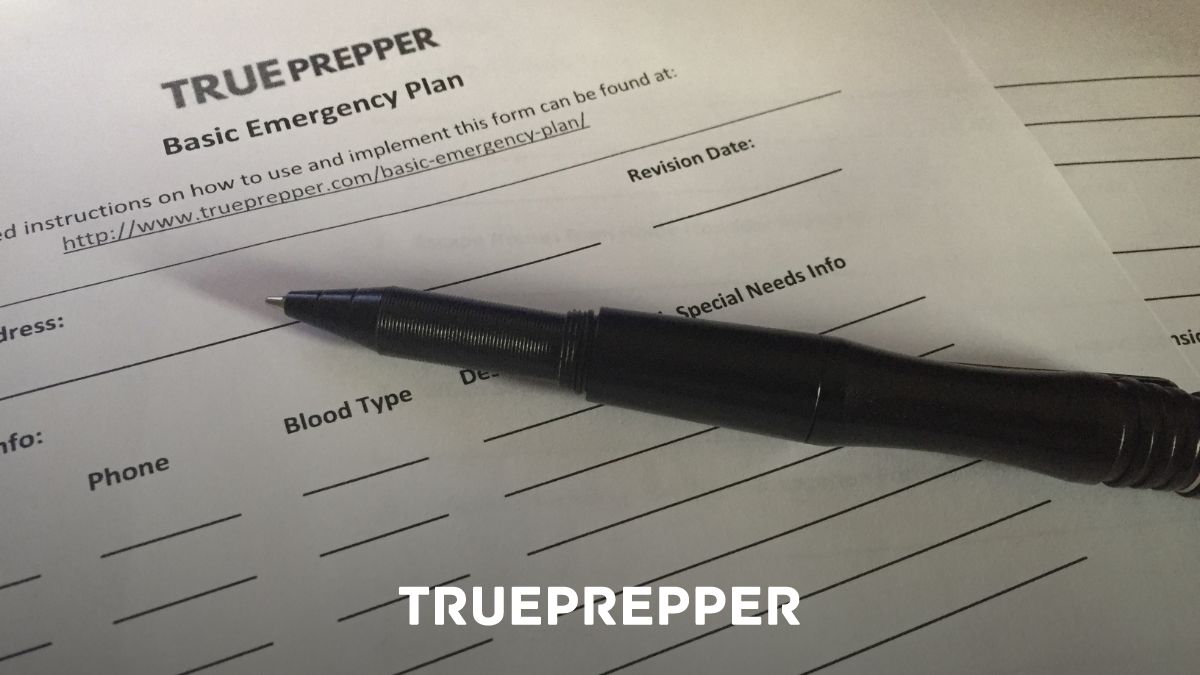
2. Prepping for 30 Days
A level of preparedness that will hold you over for 30 days is typically how most people will start to define a ‘prepper’. The reality is that preparedness starts well before this level, and not every prepper is prepared for 30 days (whether they are aware of this fact or not). More room is required to be prepared for longer periods, so space can become an issue for those in apartments or small homes.
Even though 30 days is a magnitude of 10 larger than 3 days, it is still relatively easy to accomplish using more of the same tactics for 3-day preparedness. An increased food, water, and gear stockpile is the easiest way to be able to survive for 30 days- and you don’t have to break the bank if you plan and spend wisely.
At this level, most preppers have a home survival kit and start exploring everyday carry options for preparedness on the go.
3. Prepping for 3 Months
Three months is a long time to live without access to food, water, power, and other modern dependencies. Again, stockpiling is the easiest way to hit this marker and level of preparedness. Food and water storage can be more complex- rain capture and sustainable food sources can assist if you are tight on space but have these resources available to you.
This is also the transition point where serious considerations will need to be taken to really get beyond this level. At this level, most preppers have a bug-out bag, get-home bag, and have started looking into specialized kits.
4. Prepping for a Year and Beyond
Prepping for over a year without modern society is a difficult task, and the top ‘level’ of prepping since most tactics to get to a year’s worth of preparedness are the same tactics that allow indefinite survival. To do this, preppers look at bug-out locations as options during emergencies (especially if they live in an urban or suburban area). They also may invest in a bug-out vehicle to transport them or allow them to survive on the move.
Infrastructure improvements and large-capacity storage are required for in-place plans. Bunkers, top-end home security, and sustainable resource generation are all considerations for preppers at this level.

5. Going Off-Grid
This level isn’t just going off-grid when a disaster strikes. This is making a big lifestyle change. Going off-grid (also popularly known as homesteading) is one method that allows you to become as self-sufficient as possible. How you do this can vary quite a bit, but most self-sufficient homesteaders are better prepared for disasters and survival situations than all but the most dedicated urban preppers.
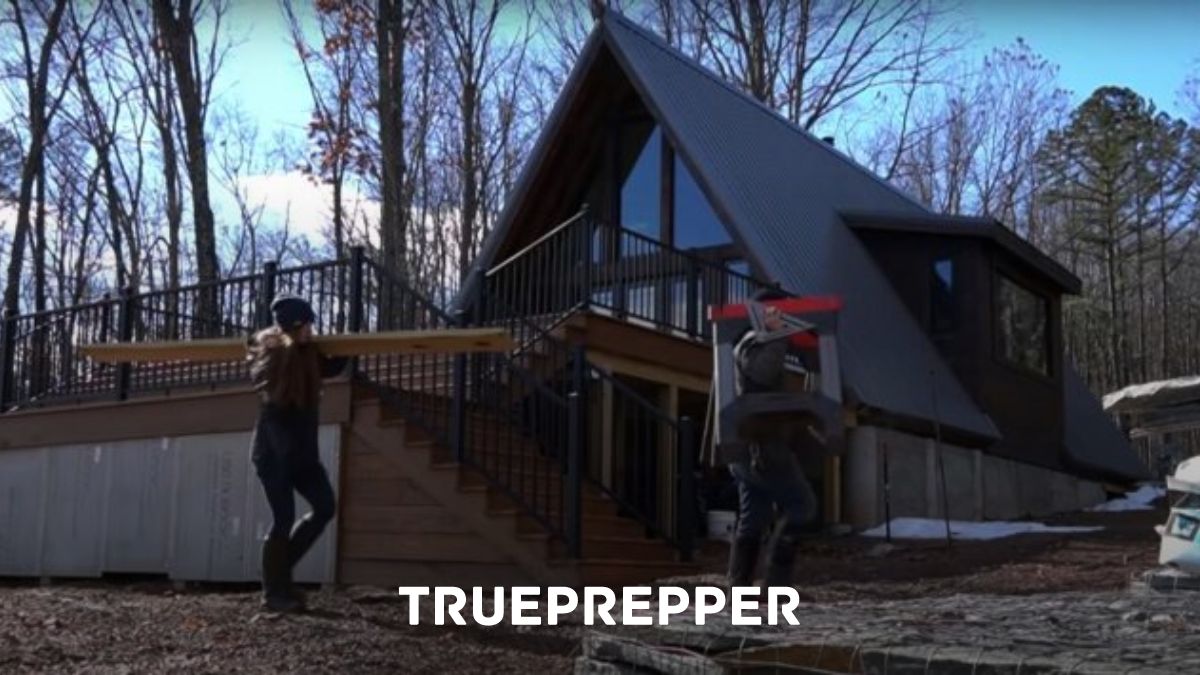
A Brief History of Preppers
When we consider ‘what is a prepper?’, the history of preparedness and preppers matters. We need to take a look at where we’ve been to see where we are now and where we are headed. Prepping has a long history- about as long as mankind has been around.
Up until the advent of supermarkets and modern food preservation, packaging, and distribution methods, prepping wasn’t a subculture- it was necessary for survival. Early man relied on resource gathering, farming, hunting, animal husbandry, and other skills for survival. All around the world, as society developed, survival methods and needs evolved. Many skills that were commonplace became niche hobbies over time or were lost completely.
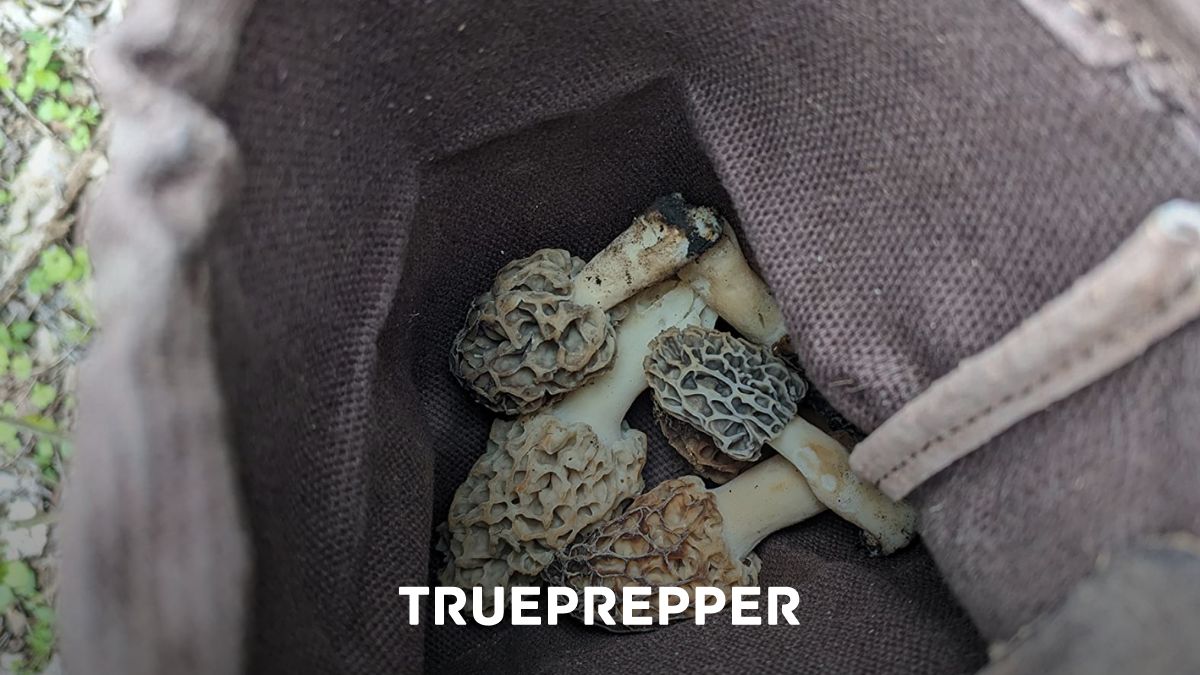
In the 20th century, prepping became especially popular, but it was better known as ‘civil defense’. The World Wars generated campaigns that encouraged preparedness and survival skills were still being widely taught as part of wartime preparedness. This evolved into a formal civil defense program that endured the Cold War, with fallout shelter designations and mass population education about the dangers of nuclear war, and how to prepare for that possibility across the nation.
Prepping, entering the internet age, was seeing a downturn in interest due to an explosion of technology and a deprioritization of government-funded preparedness education. The one exception to this was the 9/11 attack, which opened many eyes to terrorism’s expanded reach with globalization. Regardless, personal preparedness and ‘prepping’ was not a national priority.
Ironically, one of the most impactful events for prepping in the modern age has been a TV show about fringe doomsday preppers.
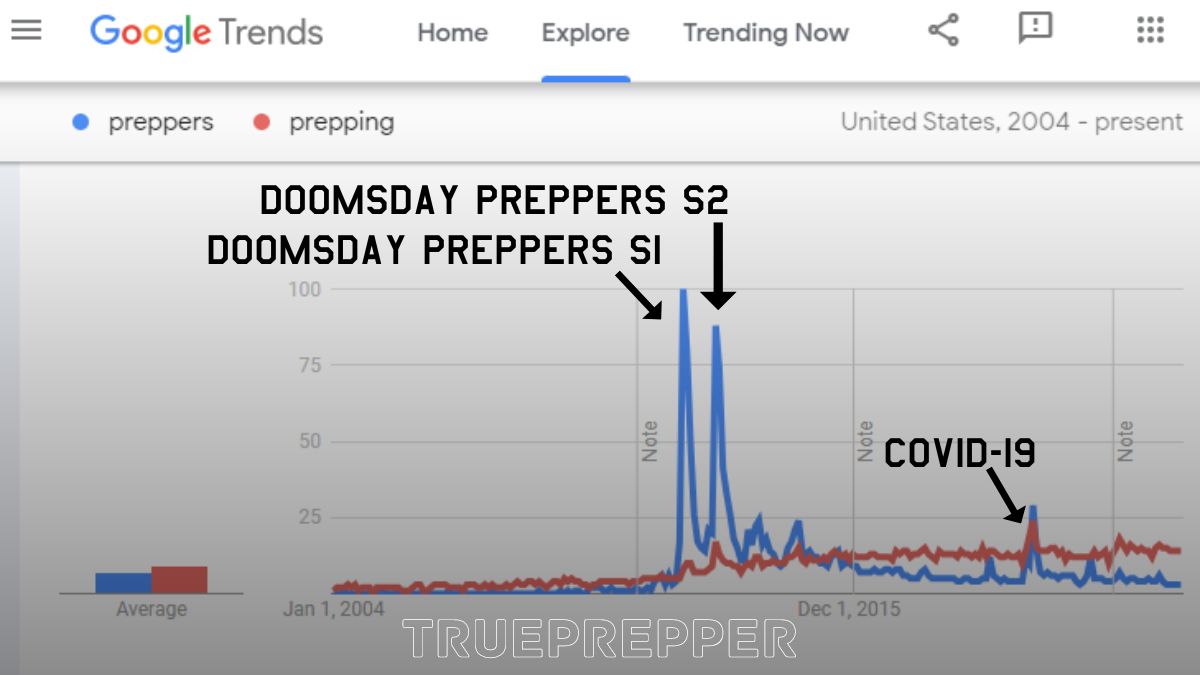
Doomsday Preppers dropped on February 7, 2011, and became National Geographic Channels’ largest hit putting them firmly on the map of middling cable channels. Ratings were through the roof, and the show ran four years before ending prematurely due to the optics associated with giving a voice to the extreme views of the fringe preppers on the show.
This came to a head when the mother and shooter at the Sandy Hook Elementary Elementary massacre were revealed to be avid preppers. Even the smallest of correlations matter when it comes to tragedies like the one that occurred that day, so it’s no wonder that Doomsday Preppers was canceled and prepping was permanently marred by both the fringe displays on that show and mentally ill mass shooters.
Despite the negative publicity in the world today, prepping continues to gain ground when people see it for what it truly is: self-sufficiency, survival, and community engagement.
Common Misconceptions
Misinformation targets almost everyone and every group these days, and preppers are no exception. One of the largest events that thrust preppers into the spotlight was one of the most damaging to the public view of prepping. Doomsday Preppers featured one of the largest misconceptions about preppers as part of their format:
Preppers prepare for one apocalyptic event
While the producers of Doomsday Preppers did seek out interesting characters (it has to be good TV, right?) the idea that each prepper prepares for a separate apocalyptic event (financial collapse, invasion, famine, EMP, pandemic) just doesn’t hold water. Most times, preppers don’t even gather the resources to address apocalyptic events, and when they do they approach it rationally understanding the summary risk of these events, rather than focusing on individual scenarios.
Preppers only prepare for the world to end
Sure, some preppers have bunkers, fall-out shelters, over twelve months’ worth of supplies, or are homesteading off-grid. But those people are the minority. Most preppers are prepared for everyday challenges, regional disasters, and national emergencies.
Preppers are solitary ‘lone wolf’ types
The ‘Mad Max fantasy’ exists, but it is not a part of practical prepping. Self-sufficiency is important, but so is community engagement. Throughout history, people have come together to overcome insurmountable odds. Ignoring the power of a prepared community is usually an error made with inexperience or overconfidence.
Preppers are Insane, Conspiracy Theorists, Rich, and Armed to the Teeth
There is some overlap (and maybe more than other groups), but these groups do not make up the majority of preppers and are on the fringe. Some of the preppers shown in public forums are all of these things combined, but they are an exception and do not represent the majority of preppers who are interested in preparing practically for disasters and emergencies.
Modern Preppers
Modern preppers are made up of a more diverse group than in previous decades. A rapidly changing world presents threats to a wide range of people, and the internet has made learning about preppers, prepping, and preparedness easier. Prepping is spreading worldwide with the help of the internet and sites like ours. Modern preppers have it easier than ever to learn about preparedness, develop communities, and stay informed.
The conversation is changing as well, with politics being extracted out of prepping to pave the way for more people to embrace a prepared lifestyle. Liberal preppers are one of the largest growing segments, energized by rapidly increasing disasters and an appreciation for volatile risks in the world.
The last decade has seen preppers typecast as the fringe outcasts, but society is finally starting to see preppers for what they really are: typical people who plan for the future.

The Future of Preppers
We can only speculate what the future holds for preppers, but as the world continues to present more varied threats we know that resourcefulness, flexibility, and getting accurate information will be increasing in importance. Large-scale events such as pandemics have accelerated the pace of mainstream preparedness interest.
The future is bright for those who are prepared and aware of the changing risk landscape. Some threats never change, but new ones have been emerging as our world changes. As long as we adapt to face challenges, the world will be an exciting place full of opportunities.
Prepping is for everyone, and everyone should be prepared.
The Next Step
Now that you know what prepping is about and what a prepper is, the next step is understanding a few of the reasons to prepare. Reasons can be varied and personal, but everyone has a reason to prepare for the future.
Learn why everyone (yes, including you) should be prepping:
You’ve Been Missing Out
Join the 2+ million preppers that rely on our prepping advice by subscribing to TruePrepper.- Practical guides and tips
- Useful survival giveaways
- Free, forever
- < 0.4% of people unsubscribe
